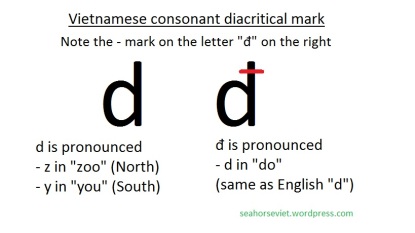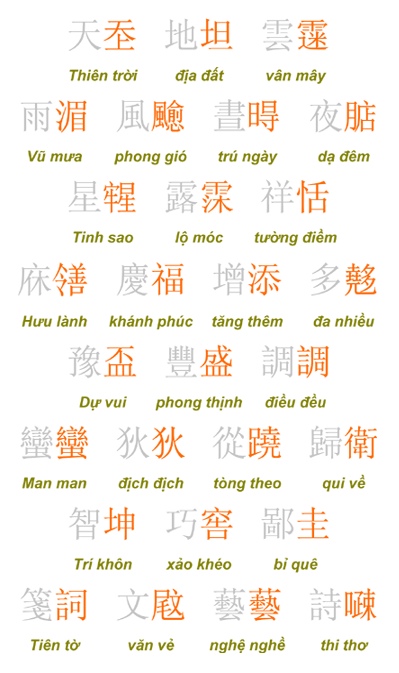The following is an attempt to introduce my readers to Vietnamese history in a fun & painless way.
In the beginning, the Vietnamese borrowed the Chinese writing system (漢字) and found it difficult to learn. Then around the 13th century, my (very distant) ancestors had the bright idea of creating chữ Nôm, our own writing system, by modifying Chinese letters to Vietnamese sounds (similar to the Japanese adopting Chinese script into the current kanji letters) to make reading and writing easier. As it turned out, chữ Nôm was even more difficult than 漢字 and never gained widespread popularity.
Only the rich, the aristocrats, and the royals could afford to learn (because time, paper, and ink were expensive). There was no school or school system. Students studied with private tutors or in small private classes. Only male students were allowed to study (some very rare “rebellious” girls studied, too, and some such as Bà huyện Thanh Quan and Hồ Xuân Hương even outdid their male counterparts).
Commoners who studied really well could take the national merit exam (not opened to female), which took place once every 10 year (a couple of girls won anyway but weren’t permitted to accept the prize).
Want to do well in the exam? Memorize as many Chinese letters, poems, and long speeches as possible then quote them eloquently on exam paper (it’s the origin of modern day hellish memorization exams in Vietnam). Back then Khổng Tử (Confucius) was very well-known and very popular testing materials 🙂
At any rate, the prize winners were scholars of great intellect. They received honors and material rewards, and were appointed to important positions in the government (which was the only way to move upward in society back then, aside from fighting in wars and getting promoted to general/commander rank).
The first prize winners were called Trạng Nguyên and there are less than 50 of them. Some of the most well-known are Nguyễn Bỉnh Khiêm, Mạc Đĩnh Chi, Lương Thế Vinh.
Many of the scholars contributed greatly to the country and the stories of their great deeds are still remembered. Prize winners at the time got their names engraved onto stone tablets (which can be seen today at Văn Miếu (Temple of Literature) in Hà Nội), as well as on street names and school names by their posterity.
🙂
Văn Miếu, Temple of Literature, Hanoi, Vietnam
In the 19th century, the French colonized Vietnam, and many mistakenly think that the current Vietnamese letters came from the French.
Nope.
The current Vietnamese alphabet were created by Portuguese missionaries to make it easier to teach the Bible. Imagine your local church or Sunday school inventing the Vietnamese alphabet 🙂
Many Chinese words found its way into the Vietnamese language and they are called chữ Hán Việt (Hán comes from 漢語 Hàn yǔ, which means the Chinese language). Pure Viet words are called chữ thuần Việt. Example: normal numbers are một 1, hai 2, ba 3, bốn 4; but sometimes when playing games, we count with chữ Hán Việt: nhất 1, nhị 2, tam 3, tứ 4.
Vietnamese also borrows words from French and English, though not as heavily as from Chinese.
What’s in it for me since Vietnamese aborted 漢字 and use abc letters? While my Chinese and Japanese friends can (relatively) easily learn to read one another’s language writing, I have a really hard time deciphering 漢字 (they all look the same to me!). The bright side? It wasn’t so bad when I started learning English. My friends had to figure out all the A B C letters from scratch and one told me it gave her great headaches.
That’s it. I hope you had fun 🙂
Just don’t quote me (or plagiarize this post) in your history paper!
Tạm biệt và hẹn gặp lại!





